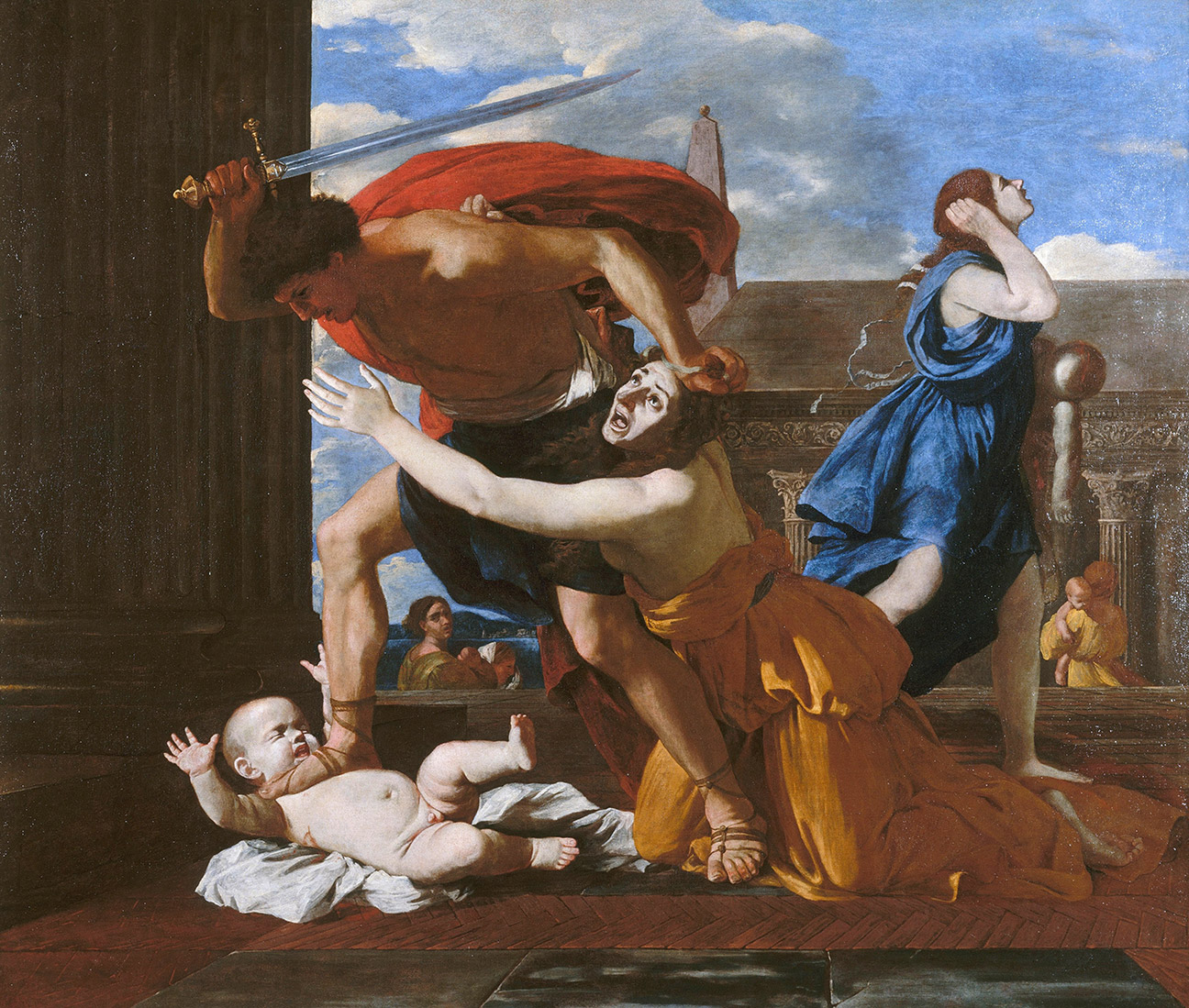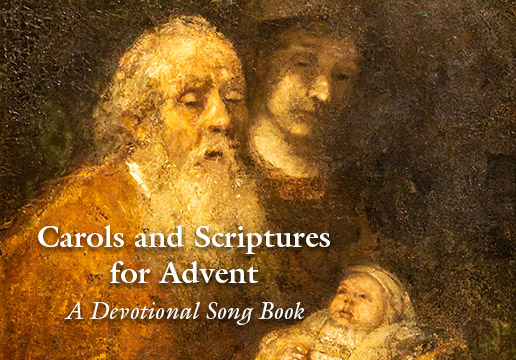
DECEMBER 19
View the Full Advent Calendar
The Coventry Carol
Artwork:
Massacre of the Innocents by Nicolas Poussin, (1625) is an oil on canvas painting. Housed at the Musée Condé in Chantilly, France, Poussin’s painting dramatically depicts from the Gospel of Matthew, King Herod’s mandate to have all boys in Bethlehem and surrounding vicinity aged two and under be put to death. Poussin used a primary palette which gives the work its dramatic strength.
Carol Text: Robert Croo, 1534
Carol Melody: Robert Croo, 1534
Piano accompaniment by Lezlie Taguding
Chorus
Lullay thou little tiny child
Bye-bye luli lul – ay (2x)
![]()
O sisters too how may we do
For to preserve this day
This poor youngling for whom we sing
Bye-bye luly lu – lay
![]()
Herod the king in his raging
Charged he hath this day his men of might
In his own sight all young children to slay
![]()
That woe is me poor child for Thee
And ev’ry morn and day for Thy parting
Nor say nor sing Bye-bye luli lulay
“When Herod realized that he had been outwitted by the Magi, he was furious, and he gave orders to kill all the boys in Bethlehem and its vicinity who were two years old and under, in accordance with the time he had learned from the Magi.”
- Matthew 2:16
Advent Devotional
Christmas has a dark side. It has to. The full brightness and splendor of all those angels’ choruses shine against a backdrop of the sinful world God came to save. Otherwise, the notion of a savior makes no sense.
At the moment of the greatest invasion of goodness this world had ever known, the badness of this world released a volcano of fury. Don’t let this often-suppressed detail of the Christmas story escape your notice—even if you do choose to omit it from your church’s children’s pageant. The human ruler of the land felt so demonically obsessed to find one specific baby who threatened him, he ordered the execution of every child two years old and younger. A little background check on Herod makes this lunacy believable, even if still horrific. He killed lots of people, including some close relatives, when he found them bothersome.
Every act of God’s salvation involves death. Think of the Egyptians in the Red Sea. That temporary salvation from earthly slavery foreshadowed the greatest, eternal, supernatural salvation purchased by the most innocent of substitutes—the One who joined the drama in a manger, amidst a culture filled with weeping and mourning. In an odd way, that moment’s tears looked forward to another day of grief—when that baby grew to be a man and die on a cross.
Most of our celebration—the vast majority of it—must be flooded with joy, songs of delight, decorations with bold colors and bright glitter, and the giving of gifts. This is right and good. But we must also allow for moments of reflection on the badness that needed expulsion, ugliness that needed cleansing, sin that needed atonement.
Prayer
Redeemer of the world,
show me the darkness
in my heart that needs
your light to shine on it.
Break my heart with the
things that break Your
heart. Help me hate sin so
as to love my
Savior all the more.

Randy Newman
Senior Fellow for Apologetics and Evangelism, CSLIRandy Newman (1956-2024) was the Senior Fellow for Apologetics and Evangelism at the C.S. Lewis Institute. He taught at several evangelical seminaries. After serving for over 30 years with Campus Crusade for Christ, he established Connection Points, a ministry to help Christians engage people’s hearts the way Jesus did. He has written seven books, Questioning Evangelism, Corner Conversations, Bringing the Gospel Home, Engaging with Jewish People, Unlikely Converts: Improbable Stories of Faith and What They Teach Us About Evangelism, Mere Evangelism. and his most recent, Questioning Faith: Indirect Journeys of Belief through Terrains of Doubt. Randy has also written numerous articles about evangelism and other ways our lives intertwine with God’s creation. He earned his MDiv and PhD in Intercultural Studies from Trinity International University. Randy went home to be with the Lord in May 2024.




